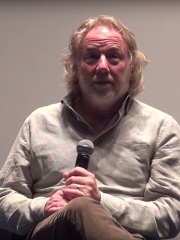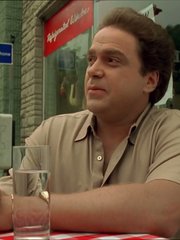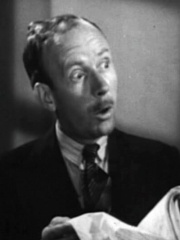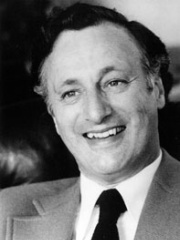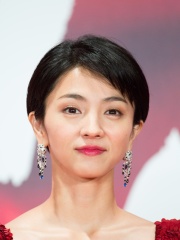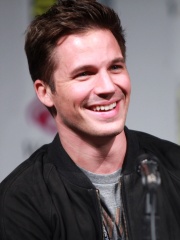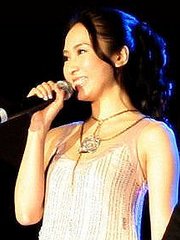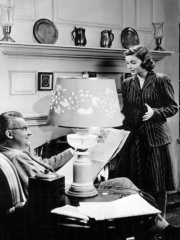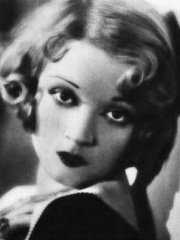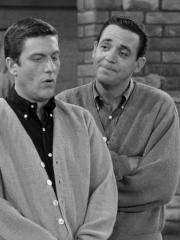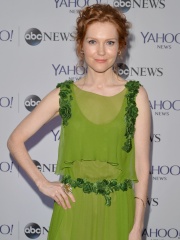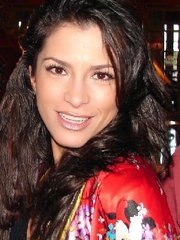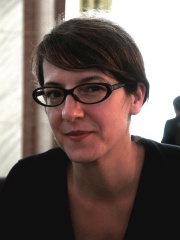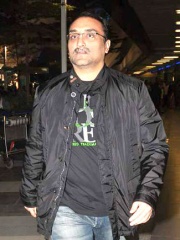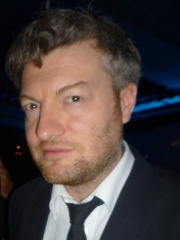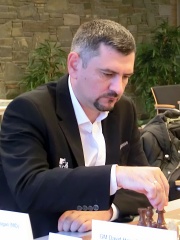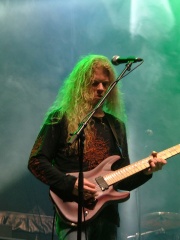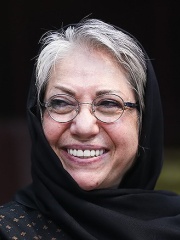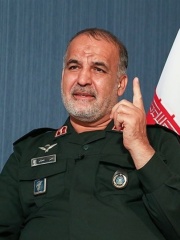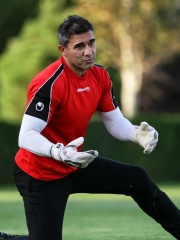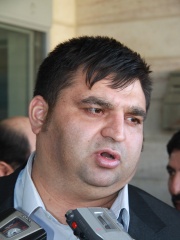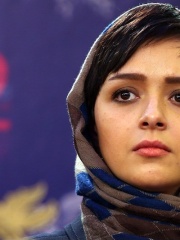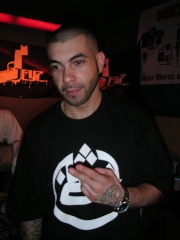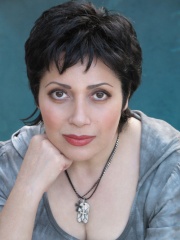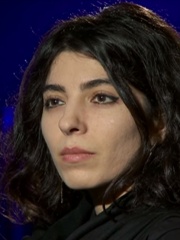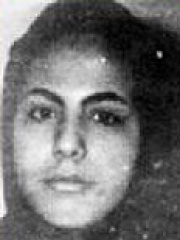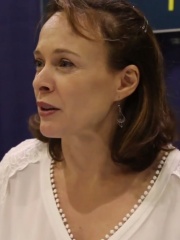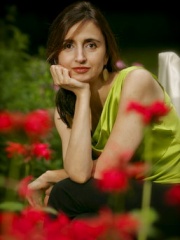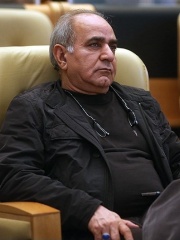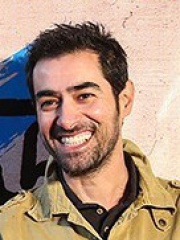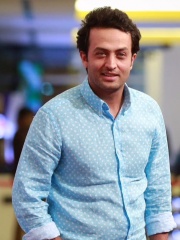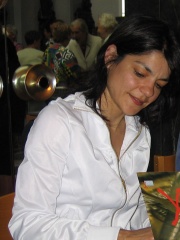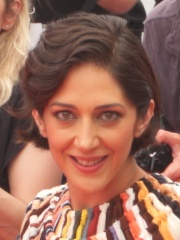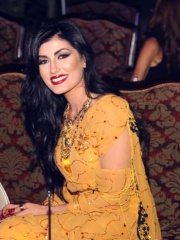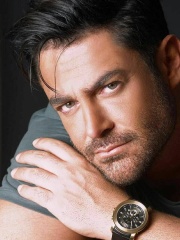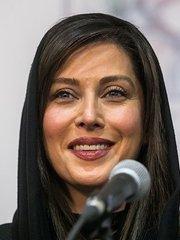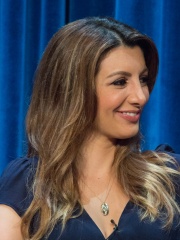ACTOR
Niki Karimi
1971 - Today
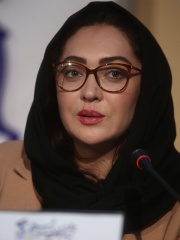
 Niki Karimi
Niki Karimi
Niki Karimi (Persian: نیکی کریمی; born 10 November 1971) is an Iranian actress and filmmaker. Regarded as "the most prominent figure among the young generations coming after post-Islamic Revolution Iranian Cinema", she has received various accolades, including a Crystal Simorgh, three Hafez Awards, an Iran Cinema Celebration Award, and three Iran's Film Critics and Writers Association Awards. Born in Tehran, Karimi began her career in the late 1980s. She received critical acclaim for her performance in Sara (1992), for which she won the best actress award at the San Sebastian Film Festival. Read more on Wikipedia
Her biography is available in 25 different languages on Wikipedia (up from 20 in 2024). Niki Karimi is the 9,545th most popular actor (down from 9,390th in 2024), the 491st most popular biography from Iran (down from 475th in 2019) and the 19th most popular Iranian Actor.
Memorability Metrics
Page views of Niki Karimi by language
Among ACTORS
Among actors, Niki Karimi ranks 9,545 out of 13,578. Before her are Timothy Busfield, Michael Rispoli, Hobart Cavanaugh, Paul Eddington, Hikari Mitsushima, and Matt Lanter. After her are Gigi Lai, Tom Tully, Olesia Zhurakivska, Alice White, Jerry Paris, and Moses Chan.
Most Popular Actors in Wikipedia
Go to all RankingsTimothy Busfield
1957 - Present
HPI: 47.72
Rank: 9,541
Michael Rispoli
1960 - Present
HPI: 47.72
Rank: 9,542
Hobart Cavanaugh
1886 - 1950
HPI: 47.72
Rank: 9,543
Paul Eddington
1927 - 1995
HPI: 47.72
Rank: 9,544
Hikari Mitsushima
1985 - Present
HPI: 47.71
Rank: 9,545
Matt Lanter
1983 - Present
HPI: 47.71
Rank: 9,546
Niki Karimi
1971 - Present
HPI: 47.71
Rank: 9,547
Gigi Lai
1971 - Present
HPI: 47.71
Rank: 9,548
Tom Tully
1908 - 1982
HPI: 47.70
Rank: 9,549
Olesia Zhurakivska
1973 - Present
HPI: 47.70
Rank: 9,550
Alice White
1904 - 1983
HPI: 47.70
Rank: 9,551
Jerry Paris
1925 - 1986
HPI: 47.70
Rank: 9,552
Moses Chan
1971 - Present
HPI: 47.69
Rank: 9,553
Contemporaries
Among people born in 1971, Niki Karimi ranks 590. Before her are Nicklas Kulti, Carlos Atanes, Darby Stanchfield, Alessandra Rosaldo, Ursula Meier, and Aditya Chopra. After her are Gigi Lai, Moses Chan, Pablo Maqueda, Charlie Brooker, Victor Bologan, and Jeff Loomis.
Others Born in 1971
Go to all RankingsNicklas Kulti
TENNIS PLAYER
1971 - Present
HPI: 47.79
Rank: 584
Carlos Atanes
FILM DIRECTOR
1971 - Present
HPI: 47.77
Rank: 585
Darby Stanchfield
ACTOR
1971 - Present
HPI: 47.76
Rank: 586
Alessandra Rosaldo
ACTOR
1971 - Present
HPI: 47.76
Rank: 587
Ursula Meier
FILM DIRECTOR
1971 - Present
HPI: 47.75
Rank: 588
Aditya Chopra
FILM DIRECTOR
1971 - Present
HPI: 47.73
Rank: 589
Niki Karimi
ACTOR
1971 - Present
HPI: 47.71
Rank: 590
Gigi Lai
ACTOR
1971 - Present
HPI: 47.71
Rank: 591
Moses Chan
ACTOR
1971 - Present
HPI: 47.69
Rank: 592
Pablo Maqueda
SOCCER PLAYER
1971 - Present
HPI: 47.68
Rank: 593
Charlie Brooker
PRESENTER
1971 - Present
HPI: 47.68
Rank: 594
Victor Bologan
CHESS PLAYER
1971 - Present
HPI: 47.66
Rank: 595
Jeff Loomis
MUSICIAN
1971 - Present
HPI: 47.64
Rank: 596
In Iran
Among people born in Iran, Niki Karimi ranks 491 out of 631. Before her are Rakhshān Banietemad (1954), Nasser Shabani (1957), Ahmad Reza Abedzadeh (1966), Hossein Rezazadeh (1978), Taraneh Alidoosti (1984), and Azad (1973). After her are Rosie Malek-Yonan (1965), Samira Makhmalbaf (1980), Atefeh Sahaaleh (1987), Tami Stronach (1972), Ashkan Dejagah (1986), and Roya Hakakian (1966).
Others born in Iran
Go to all RankingsRakhshān Banietemad
FILM DIRECTOR
1954 - Present
HPI: 48.11
Rank: 485
Nasser Shabani
MILITARY PERSONNEL
1957 - 2020
HPI: 48.05
Rank: 486
Ahmad Reza Abedzadeh
SOCCER PLAYER
1966 - Present
HPI: 47.94
Rank: 487
Hossein Rezazadeh
POLITICIAN
1978 - Present
HPI: 47.78
Rank: 488
Taraneh Alidoosti
ACTOR
1984 - Present
HPI: 47.77
Rank: 489
Azad
SINGER
1973 - Present
HPI: 47.72
Rank: 490
Niki Karimi
ACTOR
1971 - Present
HPI: 47.71
Rank: 491
Rosie Malek-Yonan
ACTOR
1965 - Present
HPI: 47.54
Rank: 492
Samira Makhmalbaf
FILM DIRECTOR
1980 - Present
HPI: 47.22
Rank: 493
Atefeh Sahaaleh
EXTREMIST
1987 - 2004
HPI: 46.84
Rank: 494
Tami Stronach
ACTOR
1972 - Present
HPI: 46.72
Rank: 495
Ashkan Dejagah
SOCCER PLAYER
1986 - Present
HPI: 46.62
Rank: 496
Roya Hakakian
WRITER
1966 - Present
HPI: 46.60
Rank: 497
Among ACTORS In Iran
Among actors born in Iran, Niki Karimi ranks 19. Before her are Parviz Parastui (1955), Shahab Hosseini (1974), Mostafa Zamani (1982), Jasmin Tabatabai (1967), Zar Amir Ebrahimi (1981), and Taraneh Alidoosti (1984). After her are Rosie Malek-Yonan (1965), Tami Stronach (1972), Helly Luv (1988), Mohammad Reza Golzar (1977), Mahtab Keramati (1970), and Nasim Pedrad (1981).
Parviz Parastui
1955 - Present
HPI: 51.42
Rank: 13
Shahab Hosseini
1974 - Present
HPI: 50.73
Rank: 14
Mostafa Zamani
1982 - Present
HPI: 50.06
Rank: 15
Jasmin Tabatabai
1967 - Present
HPI: 49.08
Rank: 16
Zar Amir Ebrahimi
1981 - Present
HPI: 48.68
Rank: 17
Taraneh Alidoosti
1984 - Present
HPI: 47.77
Rank: 18
Niki Karimi
1971 - Present
HPI: 47.71
Rank: 19
Rosie Malek-Yonan
1965 - Present
HPI: 47.54
Rank: 20
Tami Stronach
1972 - Present
HPI: 46.72
Rank: 21
Helly Luv
1988 - Present
HPI: 45.87
Rank: 22
Mohammad Reza Golzar
1977 - Present
HPI: 45.03
Rank: 23
Mahtab Keramati
1970 - Present
HPI: 44.68
Rank: 24
Nasim Pedrad
1981 - Present
HPI: 44.19
Rank: 25
